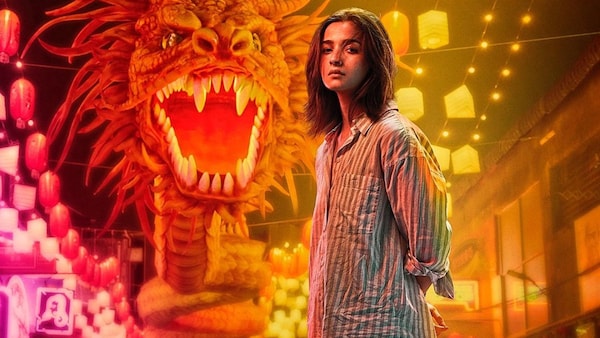Jigra: Alia Bhatt In & As The Angry Young Woman
This is #CriticalMargin, where Ishita Sengupta gets contemplative over new Hindi films and shows.

Last Updated: 08.48 PM, Oct 11, 2024
IN VASAN BALA’s Jigra (Courage) Alia Bhatt is Amitabh Bachchan. The suggestion seems both foolish and foolhardy, not least because both actors have disparate, almost contrasting, physicalities. They act differently, they react differently. And more crucially, a punch lands on them differently. If Bachchan in his youth stumbled upon being hit, then Bhatt crumples like a paper bag. If the former’s daunting presence intimidates the frame then the latter’s diminutive silhouette makes space for others. Alia Bhatt is nothing like Amitabh Bachchan yet Bala insists that she is, for she has the jigra.
On multiple levels, it is the truth. There has hardly been another female actor in recent times who has altered the mechanics of mainstream Hindi cinema with as much commitment as Bhatt has. Her choices are subversive, her craft is unmatched and they have resulted in unorthodox films garnering box office success — a union as rare as it gets. There is also the courage to turn into a producer and take the chance on herself (Jigra, like Darlings, is co-produced by her company) in a patriarchal film industry where female actors are still associated with limited shelf lives. And then, there is the courage to anchor a film like Jigra that tracks the distance a sister will cover to protect her sibling, and in the process lends a distinct femininity to the idea of heroism by revealing its roots to be knee-jerk desperation and not choreographed combat.
In Jigra, Alia Bhatt plays Satya Anand, an orphan with a younger brother, Ankur (Vedang Raina). Their mother's demise, and their father's death by suicide, leaves behind Satya to not just fend for her sibling but also turn into his protector. The family tragedy imbued her with resilience and ingrained the idea that to love someone is to keep them safe. So when Ankur gets falsely implicated in a drug case by their cousin at Hanshi Dao, a fictional composite of Thailand and Singapore, Satya makes a dash to save him. The urgency is fuelled by the fact that he is on death row.

But it is Satya who is in more of a rush. She flies in with several suitcases and a bag on her back (the image making Bhatt look even punier) as if she has packed her life in them for an expedition she knew was waiting to happen. After futilely looking for lawyers (all of whom reject the case citing the place’s stringent policies in such cases), she finds a small community of people in a similar situation (Manoj Pahwa is Bhatia, a retired gangster whose son is slated to be electrocuted and there is Muthu, played by Rahul Ravindran, a former police officer looking to bail out a young boy he had wrongly imprisoned) and soon a plan to break into prison takes shape.
If the film feels convenient here it is only because it takes the time to buy time. Two sets of jail break plans are made but neither succeeds. Ankur refrains from telling his sister that a couple of inmates and he are planning to escape, and Satya fails to convey that she is planning something similar at her end. Rumours about Jigra being an update of sorts of Mahesh Bhatt’s Gumrah, the scarring 1993 film premised on drug trafficking and prison breaks, tie up here but this is a Vasan Bala film. Most of the actors from his past films like Sikandar Kher, Radhika Madan and Akansha Ranjan make brief cameos and the flamboyance of style marries the grit of substance.
Sure two prisoners are called John Woo and Wong Kar-wai, sure the officer in charge of the prison is named Hans Raj Landa (a scene-stealer Vivek Gomber finally having his moment in the sun, and hamming it up) and sure old Hindi songs, all from Bachchan’s films, score pivotal moments but there is more purpose than mirth to the references. They all make way to the electrifying 40 minutes of the film where Bhatt explodes in the most poignant and beautiful way that will come to define her career. There is a way Bala shoots the actor that amplifies her smallness. She wears oversized t-shirts, she attacks men better equipped than her as if she is primed to fail. And yet she refuses to, like the actor is constantly fortifying this perception of hers only to defy it.
Bhatt is extraordinary in the film. Her turn is reminiscent of her past roles like Safeena from Gully Boy... yet more emotionally rich and effective. With her, Bala crafts his own angry young woman who takes the punches, flails on the ground only to stand right back up, and unlike the man, seeks personal and not social justice. Her courage feels more like the lack of self-preservation — delusional in nature but heroic in essence. If Jigra is any proof, then Alia Bhatt can be Amitabh Bachchan. She can be any goddamn thing she wants to be.

 Premium
Premium